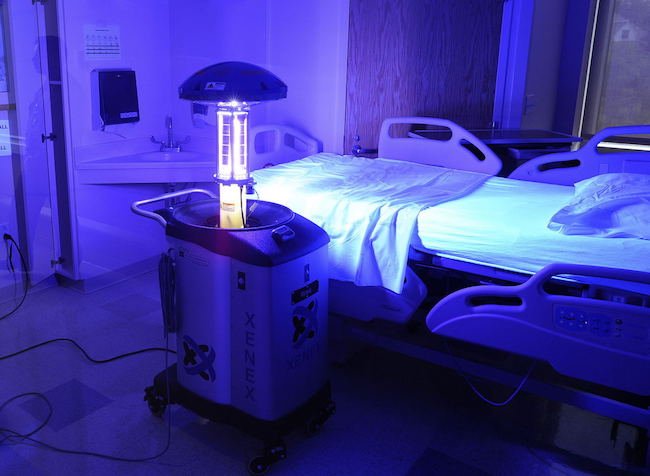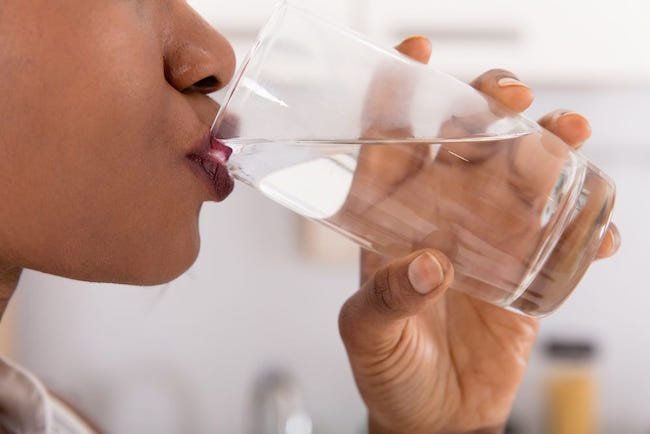Here are three COVID-19 myths you shouldn’t believe right away

It has become a sad truth that as this pandemic grows, so does misinformation about the coronavirus disease (COVID-19). We have seen this in literally every outbreak that has happened in our lifetimes. We have seen dangerous rumors about a certain disease that increase risky behaviors and make things go worse. Now, let’s discuss the misinformation about how sunshine, warm weather, and drinking water can “kill” the deadly virus.

Here are three COVID-19 myths you shouldn’t believe right away:
# 1: “The new coronavirus hates the sun.”
The idea that you can disinfect your skin, clothing, or other objects under the sunshine or with UV light has proved extremely popular. The phrase “the new coronavirus hates the sun” has since risen to popularity when we found out that it hardens in cold temperatures. So, can the sunshine or a UV light kill the virus?

No, the sunshine or a UV light can’t kill the virus. Here’s why:
Sunlight contains three types of UV. The UVA, making up the majority of ultraviolet radiation reaching the Earth’s surface, has a capability to penetrate deep into the skin. This becomes the reason for 80% of skin aging, from wrinkles to age spots. Then, there’s UVB which can damage the DNA in one’s skin, leading to sunburn and eventually skin cancer.
Aside from UVA and UVB, UVC can also come into effect. It consists of a shorter and more energetic wavelength of light. It can destroy genetic material whether in humans or in vital particles. Most of us are unlikely to have ever encountered any as the ozone filters it out long before it reaches our skin… until scientists discovered they could harness UVC to kill microorganisms.
“UVC is really nasty stuff— you shouldn’t be exposed to it.”
Artificially produced UVC has become a staple method of sterilization that can be used in hospitals, airplanes, offices, and factories every single day. Although it can be used against other coronaviruses like SARS, it has yet to be tested on how it can affect COVID-19. That may sound positive but Dan Arnorld from UV Light Technology says otherwise.
“UVC is really nasty stuff— you shouldn’t be exposed to it. It can take hours to get sunburn from UVB. However, with UVC it only takes seconds… You know that gritty feeling you get if you look at the sun? It’s like that but times 10, just after a few seconds.”
Would UVA or UVB work instead?
Possibly, but we shouldn’t rely on it. Research on SARS, a close relative of COVID-19, shows that exposing the virus to UVA for 15-minutes has no impact on how infectious it actually is. However, we have yet to look at studies with longer exposures, or UVB, which can damage genetic material.
Disinfecting your skin with any kind of UV will lead to damage, and increase your skin of skin cancer. Once the virus enters your body, no amount of UV is going to have any impact on you when you’re infected.

# 2: “Warm weather can kill off COVID-19.”
Many infectious diseases undergo different alternate increases and decreases with the seasons. The flu usually arrives with the colder winter months while typhoid tends to peak during the summer. Measles cases drop in the summer, especially in temperate climates. However, it peaks in dry season in tropical regions.
Now, many people ask if we can expect COVID-19 to react with seasonality differently. First, let’s look at when it first emerged in China. The start of the virus spread started around mid-December. Many of the largest outbreaks have been in regions with cooler weather. This led to speculation that the disease may go away as summer arrives.

Will COVID-19 eventually become seasonal? Probably.
There has already been hints that COVID-19 may vary with seasons. However, it has yet to be confirmed. The spread of the outbreaks of the coronavirus disease seems to suggest its preference over cool and dry conditions. Then, again, it has nothing on countries with wide range of climates, including hot humid ones. Furthermore, unpublished research predicts that temperate warm and cold climates remain most vulnerable to the current COVID-19 outbreak.
It is also important to note that coronaviruses consist in a family of so-called enveloped viruses. This refers to the virus being coated in an oily coat known as the lipid bilayer, studded with proteins that stick out like spikes of a crown. The oily coat makes the virus more susceptible to heat than those that do not have one. In colder conditions, the oily coat hardens into a rubber-like state.
Does warm weather help prevent COVID-19?
Unfortunately, no. There is stronger evidence that humidity can have a greater impact on our vulnerability to disease. However, the air remains particularly dry, reducing the amount of mucus coating our lugs and airways. The sticky secretion forms a natural defense against infections and with less of it, we are actually more vulnerable to viruses.
Thus, relying on warm weather to prevent COVID-19 remains unreasonable as it only dries our airways, making us more vulnerable to the deadly virus.

# 3: “Drink water so the moist can protect you from COVID-19.”
Bizarre suggestions have already risen up, thanks to social media. One suggestion says that COVID-19 can be cured with cocaine. The French government quickly issued a statement to debunk the rumor. Then, another rumor claimed that avoiding ice cream could help, prompting UNICEF to issue a statement that this is also not true. Finally, the most dangerous and definitely false idea emerged — One can prevent COVID-19 by drinking bleach. Everyone already debunked that idea as bleach can literally burn one’s esophagus and stomach.
One suggested that drinking water can help to prevent COVID-19. Although this isn’t that harmful, it is also extremely unlikely. The rumor says that one should make sure our mouths and throats remain moist and that one shall drink water every 15-minutes. Basically, the logic behind this is that the water can help wash out the virus through the esophagus which can be killed by the acidity of one’s stomach.

The water-drinking technique might not work. Here’s why:
Clinical epidemiologist at the London School of Hygiene and Tropical Medicine Kalpana Sabapathy says that this technique might not work. The main reason: the mouth isn’t the only route of the transmission of the virus. Infections often begin after one has been exposed to thousand or millions of viral particles. Sweeping a few down the esophagus may unlikely to have much of an impact.
One could already get them in their nostrils. Even if the virus doesn’t find its way inside the respiratory tract, it can also get inside the body in other ways— touching the nose or eyes. Aside from that, if the COVID-19 particles make its way into your stomach, it would be killed immediately. After all, gastric acid has a pH level that can dissolve steel.
The coronavirus can be more robust than your gastric acid.
A research in Saudi Arabia in 2012 says that a relative of COVID-19 remains considerably resistant to slightly diluted acid, one that you can find in a person’s stomach who just recently ate. The virus can colonize the patient’s gut and colonize cells from the intestine. Then, it might be possible to become infected that way.
Aside from the lack of research, this technique is not based on science— it still remains as hypothetical guess, a theory. People will think that by drinking water every 15-minutes, they will be safe from the virus which diverts from more important messages.
Put down the water and pick up the soap, instead.

Stay at home, observe proper hygiene, eat healthy foods, and remember: social distancing matters.
Angela Grace P. Baltan has been writing professionally since 2017. She doesn’t hesitate to be opinionated in analyzing movies and television series. Aside from that, she has an affinity for writing anything under the sun. As a writer, she uses her articles to advocate for feminism, gender equality, the LGBTQIA+ community, and mental health among others.




